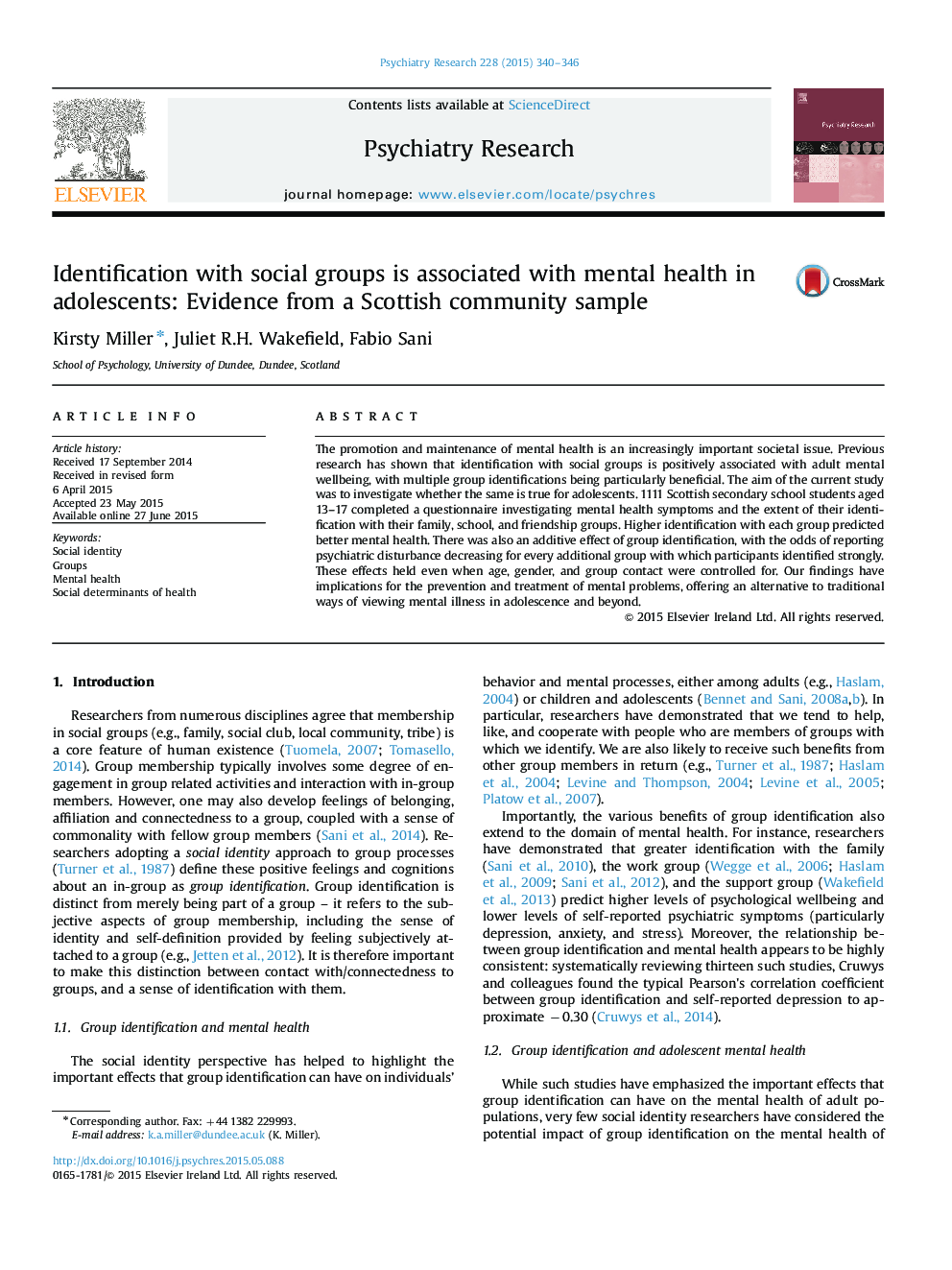| Article ID | Journal | Published Year | Pages | File Type |
|---|---|---|---|---|
| 10303677 | Psychiatry Research | 2015 | 7 Pages |
Abstract
The promotion and maintenance of mental health is an increasingly important societal issue. Previous research has shown that identification with social groups is positively associated with adult mental wellbeing, with multiple group identifications being particularly beneficial. The aim of the current study was to investigate whether the same is true for adolescents. 1111 Scottish secondary school students aged 13-17 completed a questionnaire investigating mental health symptoms and the extent of their identification with their family, school, and friendship groups. Higher identification with each group predicted better mental health. There was also an additive effect of group identification, with the odds of reporting psychiatric disturbance decreasing for every additional group with which participants identified strongly. These effects held even when age, gender, and group contact were controlled for. Our findings have implications for the prevention and treatment of mental problems, offering an alternative to traditional ways of viewing mental illness in adolescence and beyond.
Related Topics
Life Sciences
Neuroscience
Biological Psychiatry
Authors
Kirsty Miller, Juliet R.H. Wakefield, Fabio Sani,
